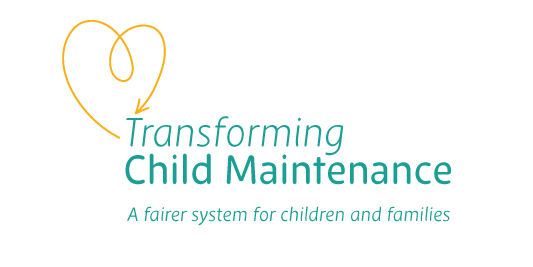A failed experiment – the need for a new approach to child maintenance in the UK
Casey Smith is a researcher at IPPR Scotland and has co-authored several reports since then across a range of issues, including for the Transforming Child Maintenance project. As part of this project, IPPR Scotland commissioned public polling on attitudes toward Child Maintenance. This blog shares the results.
27/10/2025
IPPR Scotland shapes public policy in pursuit of a fairer, greener, more prosperous Scotland. For the Transforming Child Maintenance project, it has delivered focus groups with paying parents, commissioned public polling around child maintenance, carried out workshops and interviews with professionals with expertise in child maintenance and used statistical analysis to create ‘models’ showing the impact and cost of different possible new approaches to the child maintenance system.
- Casey Smith, Researcher, IPPR Scotland
An important part of being a parent is supporting their child financially. If parents separate, the parent who no longer lives with their child should continue fulfilling this responsibility by paying child maintenance.
Child maintenance payments help bolster children’s financial security, a particularly important issue given the high rates of child poverty among children living with just one adult.
Child maintenance in the UK can either be agreed privately between parents, or with the involvement and support of the government. If parents are unable to agree maintenance themselves, the UK state sets minimum standards for maintenance that should be paid, based on the paying parent’s income. If a parent fails to pay cooperate voluntarily, this minimum standard can be enforced through state supported Collect & Pay arrangements where the Department for Work and Pensions (DWP) can make transfers from the paying parent’s earnings and income.
Responsibility for regulating child maintenance falls under the purview of the DWP’s Child Maintenance Service (CMS). Unfortunately, the current maintenance system in the UK is not working at its full potential to deliver on that dual objective.
Currently too many separated families do not have a maintenance arrangement in place. Meanwhile, among those parents who do engage with the CMS, 35 per cent describe being dissatisfied with their experience while only 22 per cent were satisfied, suggesting that it’s a sub-standard service that itself generates distress. While 32 per cent say the current system worsens conflict between estranged parents, only 23 per cent say it successfully reduced conflict. In short there is urgent need for reform, and that is why we at IPPR Scotland, alongside our partners at One Parent Families Scotland and Fife Gingerbread, have sought to investigate what is wrong and what can be done to fix child maintenance in the UK.
- Casey Smith, Researcher, IPPR Scotland
Children raised in single parent households are among those most likely to experience poverty. The failure of the child maintenance system leaves already vulnerable children and families in financial and emotional despair. When paid, child maintenance can help reduce a child’s poverty risk by ten percentage points. Unfortunately, today, approximately two million children are living without a maintenance arrangement, depriving them of money to which they are rightly entitled. Indeed, we estimate that if child maintenance was paid to all eligible children, an additional £2.7 billion would be transferred, lifting 210,000 children out of poverty.
- Casey Smith,
As of today, the initial £20 fee has been removed by the CMS on the basis that it proved too successful a barrier in keeping parents in need of support from accessing state-supported arrangements, however the same fees and deductions for Collect & Pay remain. The financial penalty incurred from this approach is compounded by the message it sends to parents – that reliance on state support is discouraged and unwelcome. This philosophy is counterproductive to the stated aim of maximising the number of maintenance arrangements in place and ensuring wellbeing of children at the heart of it.
When asked about how the CMS should be funded, most parents opposed fees and deductions to keep the service running. Instead, 64 per cent of them were in favour of the CMS functioning like other public support services funded through general taxation. Our research shows that it is crucial that parents receive support when they need it without their being penalised.
In addition to the removal of the initial £20 fee, the CMS has consulted on reducing the value of Collect & Pay fees and deductions to parents. This shift in direction can be taken as acknowledgment that the CMS knows the fees-system is flawed – this should be welcomed but not stop there. Our report calls on the removal of all fees within the maintenance system. However, fees aside, there remain many other policy barriers to more families reaching successful arrangements.
For example, another CMS imposed barrier parents face is they can only make use of Collect & Pay arrangements if they have already attempted a Direct Pay arrangement (apart from those experiencing domestic abuse who move immediately to Collect & Pay). A Direct Pay arrangement is where maintenance is transferred between parents but must be logged with the DWP. It functions effectively as a stopgap arrangement which demands only minimal state involvement. This has the effect of forcing parents to endure an additional step before parents can access the kind of the support and enforcement that may be necessary to secure their child’s financial security.
Erecting these kinds of barriers to further state support only serves to escalate tension and difficulty for parents at a time of already great challenge. As well as these purpose-built barriers that keep parents from accessing state support they may need, the quality of the service on offer to parents often undermines the willingness of parents to engage and make use of the CMS.
On top of these barriers, parents who have used CMS are often left dissatisfied with the quality of the service. Both paying and receiving parents complain of CMS support that can feel more like negotiating a mobile phone contract rather than resolving a matter which carries with it deep sensitivities and hardship. The result is a service that can be inconsistent in its communications, guidance, and accessibility to parents. So much so, we heard from an organisation set up to support single parents that parents are advised to avoid engaging the CMS given the reputation it has acquired for failing parents and children.
Disassembling the structural impediments to state-backed maintenance arrangements is crucial. There must also be a concerted effort to enhance the quality of the service the CMS provides to parents actively engaged in the support system. Indeed, our polling suggests majority support among parents (56%) for increased investment to deliver a strengthened CMS, and publicly funded caseworkers located in every national region to respond to and handle the most challenging maintenance cases experienced by parents (56%). Support is stronger still (68%) for parents having the option of dedicated caseworkers within the CMS to handle individual cases from start to finish. Our report calls on investment across these three interventions to deliver a better service for parents.
The CMS has become a residual service by design. A service for families who have found it impossible to reach the UK government’s preferred outcome of a private family-based maintenance arrangement. What should have been the primary objective of securing maintenance arrangements for as many children as possible (widening access to support to all parents) is today secondary to promoting private resolution.
Our polling indicates that parents are 78% in favour of a more fundamental change in direction: an approach to child maintenance in the UK that prioritises getting maintenance arrangements in place, no matter their design, complexion or scale of state involvement. Here is where a more active state can play a larger role in ensuring less children of separated parents grow up in poverty.
We are calling for the DWP to reform the current system into a Child Maintenance Payment Platform which replaces Direct Pay and opens the systems behind Collect & Pay to all parents to manage their arrangements if they desire it. The platform would be inclusive and support the whole spectrum of child maintenance arrangements, facilitating and enforcement payments where appropriate without fees, and offer a consistent interface for parents to manage payments.
Child maintenance is changing in the UK, but it needs more than incrementalism and tinkering with existing barriers. A deeper shift in philosophy is necessary to ensure child maintenance is delivering for the children it is there to serve. We must shift away from a CMS which looks upon state support as a last resort, and more as an active participant in securing financial security for children with separated parents.
That demands a more all-encompassing maintenance service (enforcement enhancements, interactions enhancements, training enhancements, dedicated case workers) as well as a greater appreciation for the challenges separated parents face navigating maintenance support. Our new report is the conclusion of two years of work and influencing governments on a new direction for child maintenance, setting out the case for reform and specific recommendations to make lives better for children and families. The message: change is needed, parents are on side, and the UK government should get in line.


